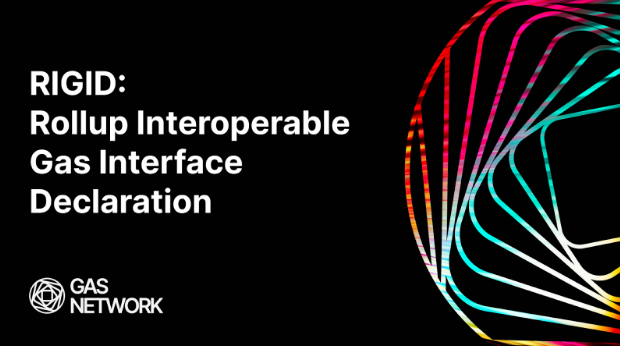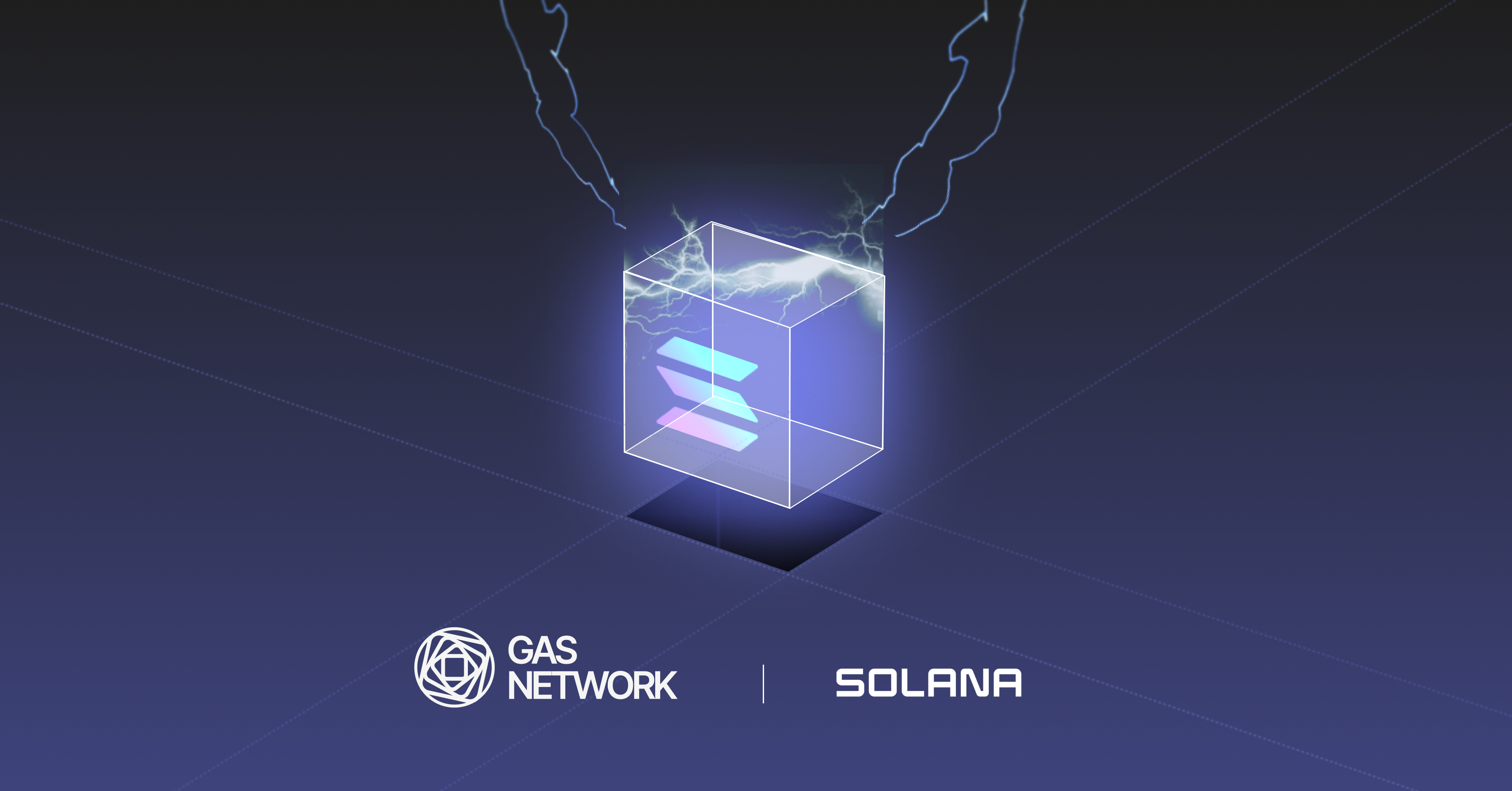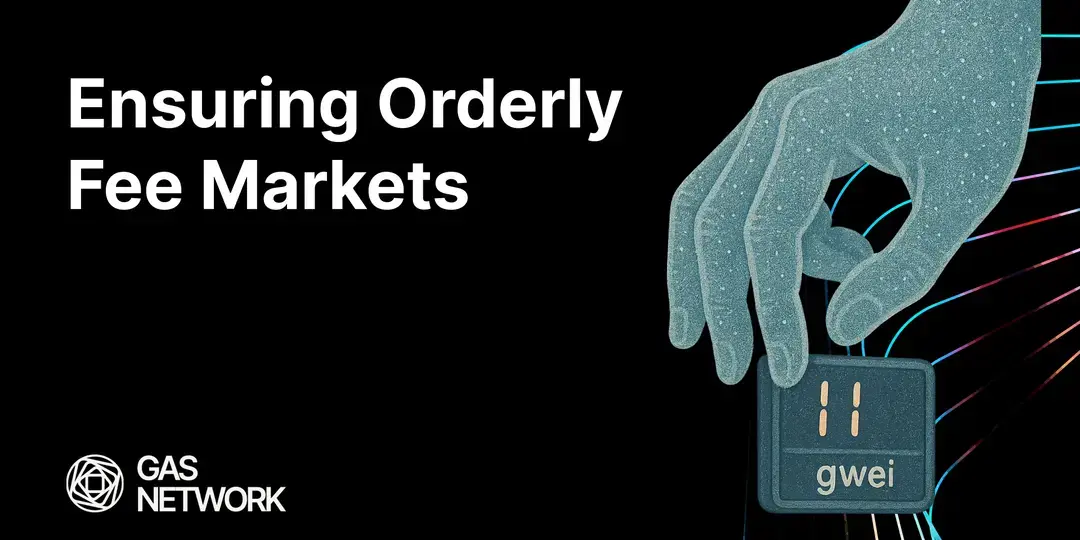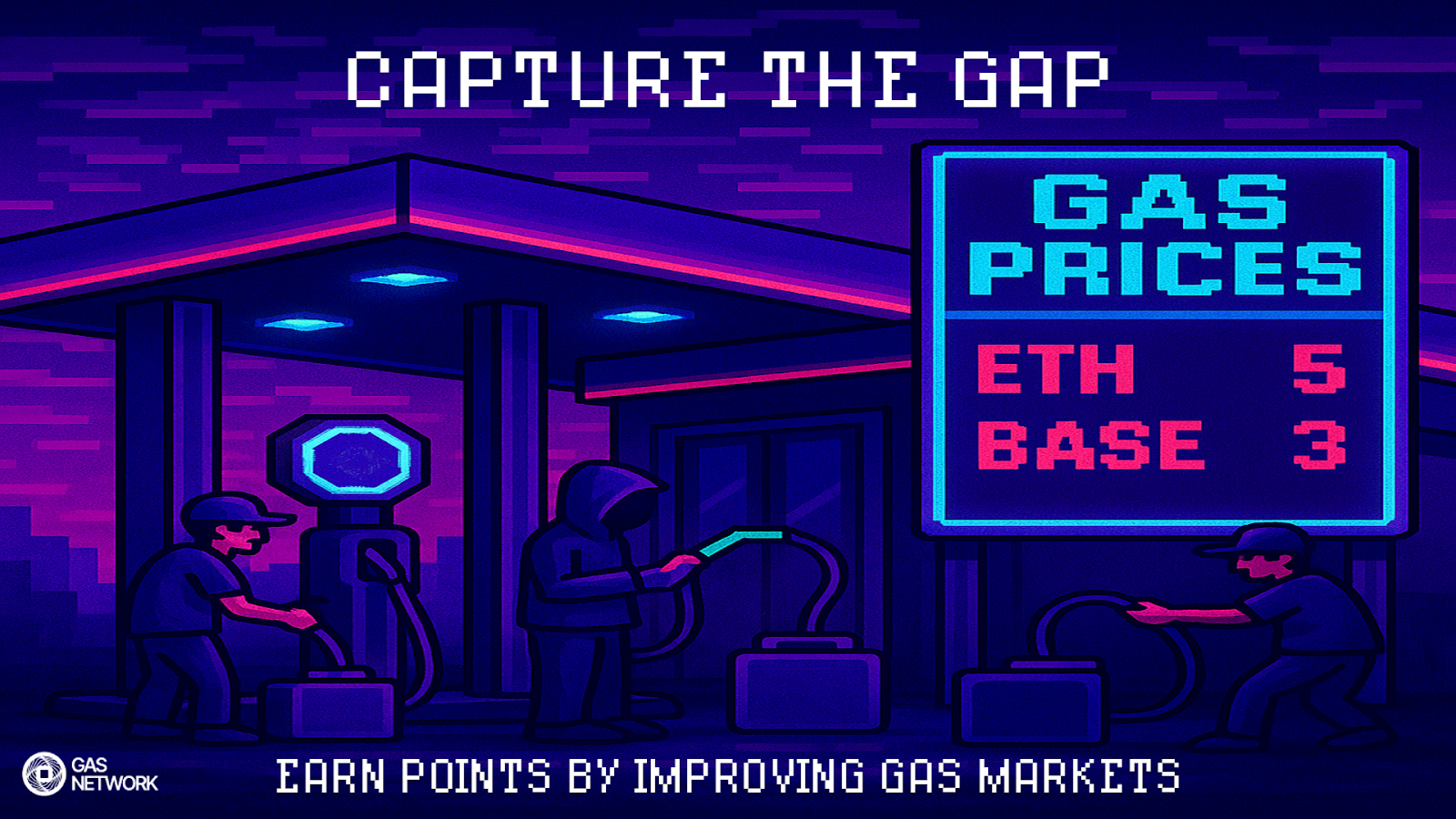As Ethereum scales through rollups, one challenge has become clear: every rollup has its own way of pricing gas. Some use calldata, some use blobs, others rely on proof costs or computation complexity. This diversity makes it hard for wallets, protocols, and relayers to reason about costs - let alone optimize them.
To solve this, we’re introducing RIGID: the Rollup Interoperable Gas Interface Declaration.
What is RIGID?
RIGID is a proposed onchain standard that lets rollups publish their gas market logic in a structured, machine-actionable, and verifiable format. Think of it as an onchain schema for gas - one designed for automation, versioning, and trustless interoperability.
RIGID declarations are encapsulated in a GasMarketDeclaration struct and include:
- Structured
FeeComponentarrays with RPN (Reverse Polish Notation) formulas, parameters, and accepted payment tokens. - Standard Context Variables and Rollup-Specific Context Variables that act as inputs for fee calculations.
- A governance-aware update process with onchain versioning and events.
In short: RIGID would serve as the source of truth for how gas works on every chain.
Why It Matters
The diversity of rollup fee models isn't the problem - the lack of structured, onchain visibility is. Today, fee logic is often opaque, undocumented, or not published in a way that external agents can reliably use. This creates significant friction across the ecosystem, impacting various participants:
- Lack of Transparency: Developers can't easily verify how fees are calculated. This leaves Dapps struggling to accurately estimate the true cost of multi-step or cross-domain execution, and Paymasters finding it difficult to determine whether submitted transactions fall within reasonable cost bounds.
- Poor Interoperability: Cross-rollup tooling can't reliably compare or route costs. Relayers need clear, verifiable data to provide fair pricing and avoid overcharging
- Manual Maintenance: Updates to gas logic often break estimators and routers, requiring constant manual fixes. RIGID makes discovery easier by exposing gas logic onchain and emitting change events.
Without clear, verifiable declarations of gas mechanics, every participant - from developers to automated agents - is left guessing. This is a growing liability in a multichain world where execution is increasingly dynamic, asynchronous, and decentralized.
RIGID fixes that by bringing clarity, automation, and governance alignment to gas pricing. It shifts the source of truth from opaque offchain sources to verifiable onchain declarations, enabling machine interpretability and aggregation across the L2 ecosystem.
A Simple Example
RIGID leverages highly optimized data structures for its declarations. These are designed for maximum efficiency in onchain storage and for machine-actionable parsing. The core of any RIGID declaration is encapsulated within the GasMarketDeclaration struct.
Here’s a diagram representing a GasMarketDeclaration any rollup can use to define its gas market:

GasMarketDeclaration Onchain Data Structure Diagram V1.0
For more details, refer to the RIP draft here: https://github.com/ethereum/RIPs/pull/74
Who Benefits
- Rollups get a standard interface to publish their gas logic, maintaining full governance control over their declarations.
- Wallets & Protocols get real-time, accurate fee estimates across chains, improving UX and enabling better routing.
- Researchers can track economic evolution over time with verifiable, onchain historical data.
- Gas Agents (like those on gas.network) can route and price efficiently, adapting instantly to new fee models.
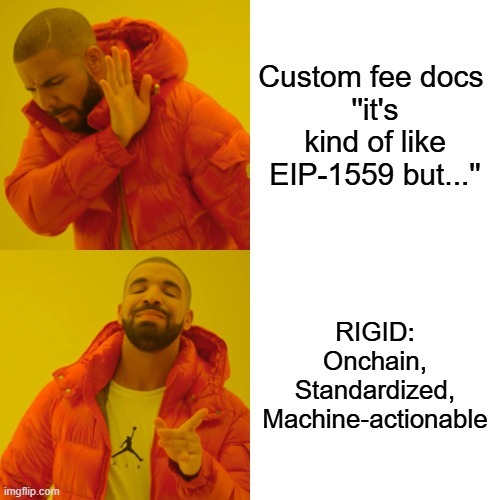
RIGID + Gas Network: Enabling Cross-Chain Execution
As we move from transaction-centric to message-based architectures (ERC-7786: The Crosschain Messaging Gateway), applications need to estimate and verify gas costs across multiple chains - even if they don't control routing.
This is where RIGID and Gas Network work together:
- RIGID declares how a chain prices gas by providing a structured, onchain specification.
- Gas Network delivers live gas prices via RPC or onchain oracles, utilizing RIGID declarations as their source of truth.
Together, they enable:
- Pre-send cost estimation for messages.
- Post-execution cost verification.
- A move toward self-routing, self-verifying messages - without centralized relayers.
Stop Guessing. Start Building.
We believe RIGID is a foundational step toward a multichain world where:
- Developers no longer reverse-engineer gas logic.
- Applications and agents adapt instantly to evolving fee models.
- Systems can verify gas pricing deterministically across chains.
Just like we have standards for tokens (ERC-20), metadata (ERC-1046), and node discovery - it’s time we had one for gas.
RIGID is still in draft form. We’re sharing it with the community for feedback and iteration. If you’re building on rollups, care about gas fee UX, or operate infrastructure that spans L2s, we’d love your input.
👉 Read the full RIP draft here: https://github.com/ethereum/RIPs/pull/74
👉 Join the conversation on Eth Magicians.
Gas Extension
Blocknative's proven & powerful Gas API is available in a browser extension to help you quickly and accurately price transactions on 20+ chains.
Download the Extension